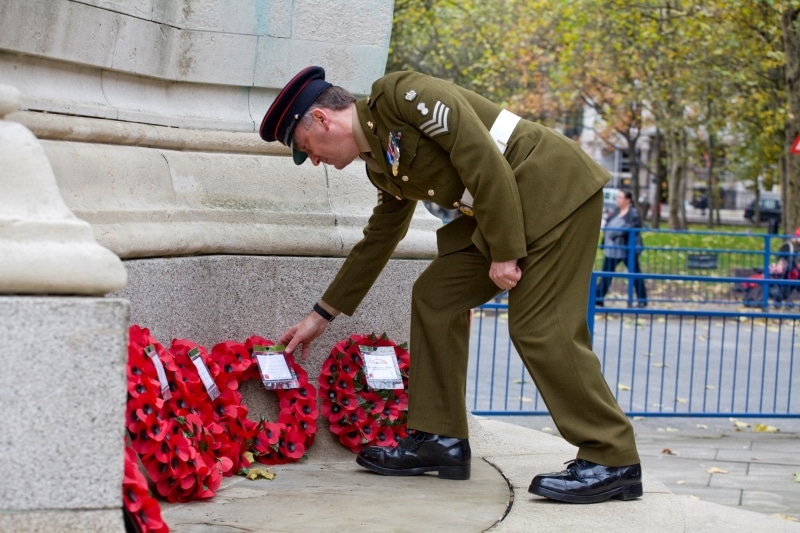Last week, on November 11th, it was Armistice Day.
Armistice Day coincides with Veterans Day in the United States and Remembrance Day in Commonwealth countries. The significance of the holiday is commonly attributed to honoring those who serve, served, and lost their lives serving in the military. But what’s the history of Armistice Day?
The Signing of the Armistice
World War I ended “on the eleventh hour of the eleventh day of the eleventh month” in 1918. The four years of WWI stunned the world. No one had ever witnessed such great capacity for destruction and death all at once, a result of new technological advances in weaponry and the advent of industrialization.
After four years of a war that caused about 40 million in casualties, the final remaining Central Power, Germany, was running out of supplies and manpower. At 6:45 in the morning on November 11th of 1918, in the private railcar of French commander Ferdinand Foch, Germany signed an armistice with the Allies. It took effect 11 o’clock that morning, thereby ending all hostilities and effectively ending the war.
World Celebrations of Armistice Day
Armistice Day became a holiday in many countries all over the world. In 1938 in the United States, Armistice Day was marked with so many ceremonies, religious services, and parades that Congress approved an act to make it into a legal holiday. In 1954, the holiday was renamed Veterans Day.
Gatherings are a common way to celebrate Armistice Day in observant nations. But, for example, in the UK, Remembrance Day is celebrated on the second Sunday of November. At 11 o’clock in the morning, a two-minute period of silence is observed throughout the country.
Additionally, in the UK and Canada, the poppy flower is considered a symbol of the armistice. So, paper and cloth poppies can be seen adorning towns and people’s clothing. For this reason, sometimes Remembrance Day is known as Poppy Day.
The Language of Armistice
Armistice Day is a day to celebrate world peace, honor, and service. With so many different countries involved, one can only imagine the effect of linguists, translators, and interpreters at such a critical time.
We are proud to be in that line of work, with the hope of supporting law, education, and international development. Our promise is to offer specialized language services – such as immigration law translation, medical device labeling translation, community interpreting, or simply full language service – with the highest efficacy and quality.
About Language Connections:
Language Connections is one of the top language service companies in the US. Over the last 30 years, we’ve focused on providing the best business translation services, interpreting services, localization services, as well as interpreter training and customized language training programs. In addition to top-tier corporate language training, we offer certified corporate interpreters and professional business translation services in 200+ languages. Our network includes linguists with backgrounds in all major industries. They’re ready to meet your needs, whether they’re for technical translation services, legal translation, government translation services, international development translation services, education translation services, life sciences translation, or something else. Reach out to us today for a free quote on our cost-efficient and timely translation services, interpreters, or other linguistic services.
Language Connections Inc.
2001 Beacon Street, Suite 105,
Boston, MA 02135
Phone: +1-617-731-3510
Email: service@languageconnections.com


